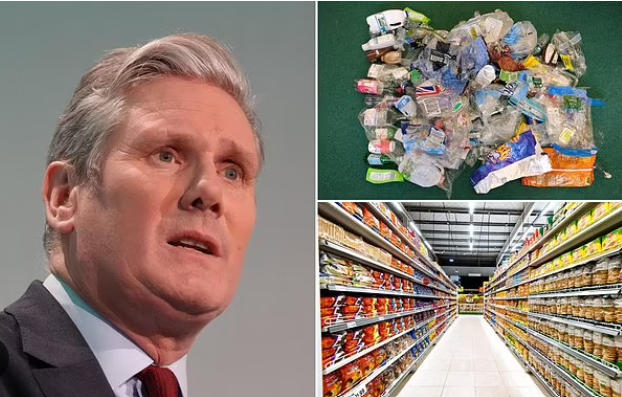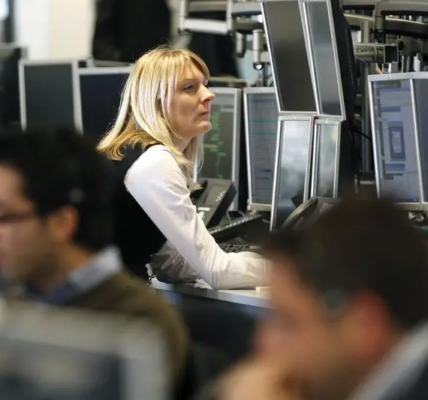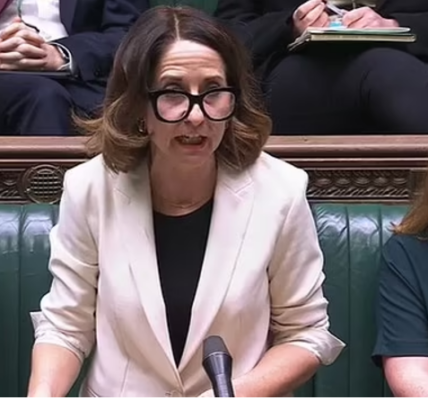Keir Starmer and Labour’s net zero ‘grocery tax’ could push up the use of harmful plastics, industry leaders warn_Nhy
Labour’s net zero ‘grocery tax’ could increase the use of plastics that are harmful to the enivronment, business leaders have warned.
Manufacturers will be charged per tonne of packing materials they use under a new levy which is aimed at helping the UK reach net zero argets and reduce waste.
However, senior industry figures have warned that the ‘insane’ design of the scheme means it will in fact increase the amount of non-recyclable materials sent to landfill sites or incinerators, The Telegraph reported.
The Extended Producer Responsibilty (EPR) levy will see £56 added to household costs annually, according to the Government’s calculations.
Under the scheme, retailers and manufacturers will be charged more for using plastic wrapping compared to other materials.
But charges will be calculated by weight instead of volume, which industry leaders suggest will still make plastic cheaper than heavier recyclable materials such as metal or glass.
Jason Galley, director and chief executive at the Metal Packaging Manufacturers Association, told The Telegraph: ‘It was advertised as supposed to reduce waste, increase recycling and reduce packaging – but actually it is driving in 180 degrees in the other direction.
‘If you charge less for something that recycles less then you have higher fees for disposing of those materials as it will have to go to landfills or to be incinerated. You push costs up, you drive towards something that is feeding inflation, it is just insane. It is lose-lose.’

Retailers and manufacturers will be charged more for using plastic wrapping compared to other materials

The new ‘groecry tax’ has been brought in by Keir Starmer and Labour to help meet net zero targets
Dave Dalton, chief executive of British Glass, said the policy will ‘squeeze’ consumers by adding unreasonable costs and called it ‘completely illogical’.
‘Glass fees will be around 49 times higher than other, less recyclable materials, leaving brands with no choice but to move away from using 100 per cent recyclable glass products,’ he said.
He argued consumers will now be indirectly taxed to use less sustainable materials.
Mr Dalton has urged ministers to amend the fee calculation so that it is measured by volume instead of weight.
Dr Nicholas Kirk, director of the British Glass Manufacturers’ Confederation, said that plastic packaging can be 10 or 20 times lighter than glass meaning businesses could make considerable savings by switching away from glass and using plastic instead.
He said that while the industry supports the principle of the levy, the fee structure has been pushed through quickly without consultation with the industry.
Critics have previously warned that the measure will push up food costs for families while imposing red tape on businesses.

Producers and manufacturers ar ebeing urged not to use plastic packaging, but experts have warned the levy may have the opposite effect
Families have already been hit by rising food prices in recent years, as inflation has continued to rise for the second month in a row.
A Defra spokesperson said they are ‘committed to cracking down on waste’ to move towards a circular economy.
They said the reforms will create 21,000 jobs and stimulate more than £10 billion investment in the recycling sector over the next decade.
They argued that packaging producers, rather than the taxpayer, are covering the cost of managing waste.


